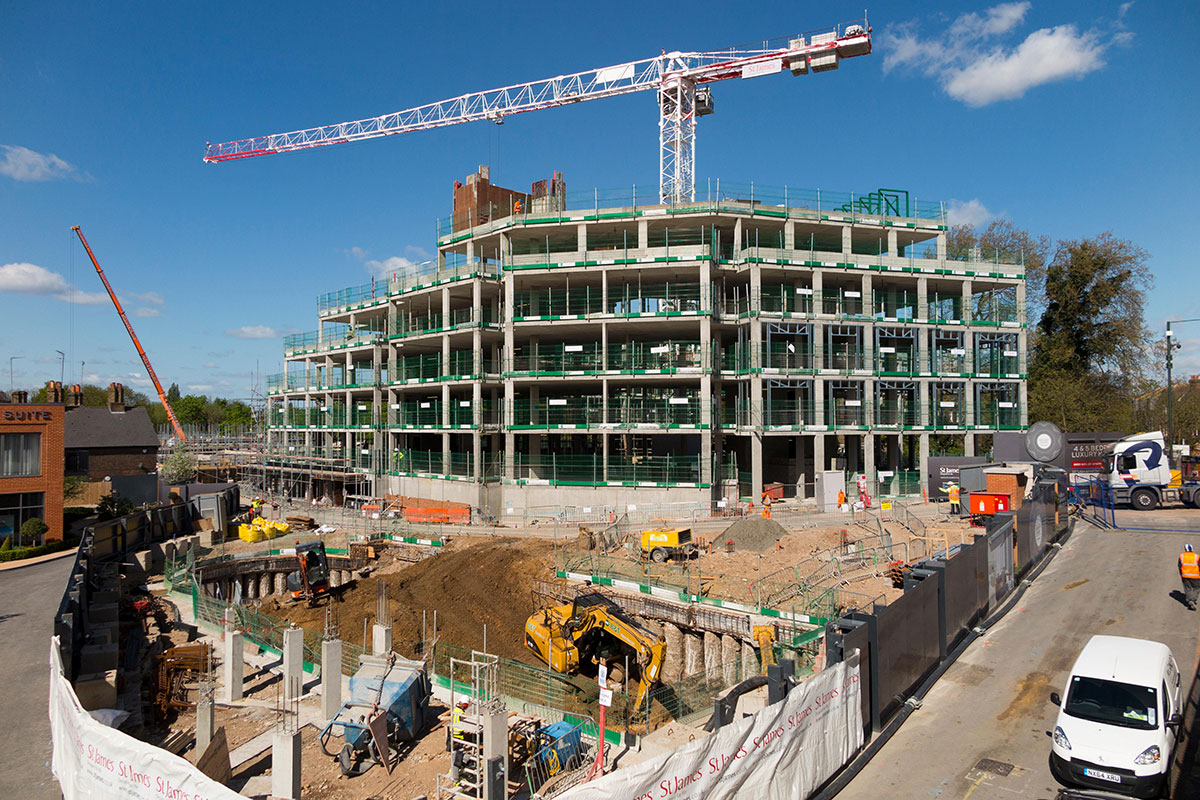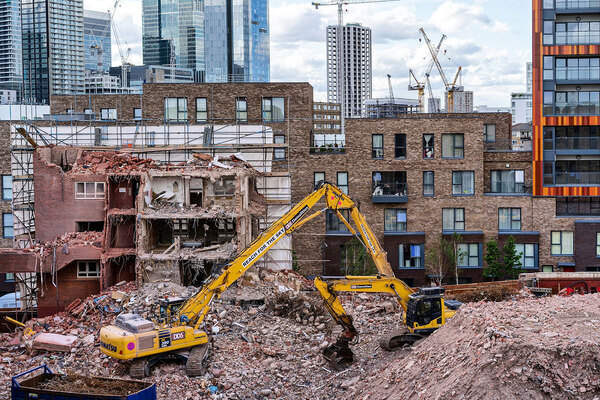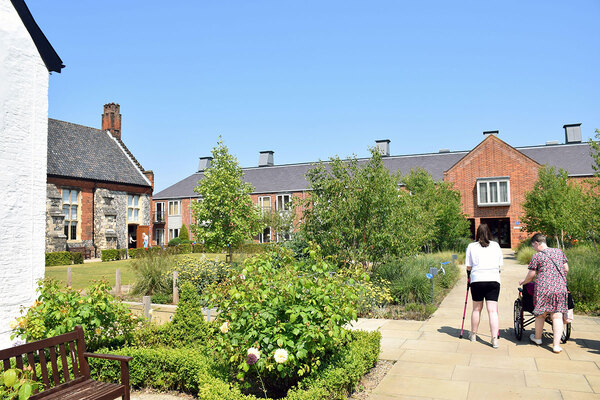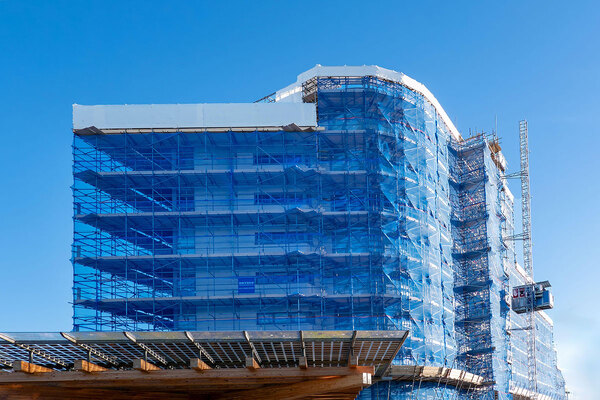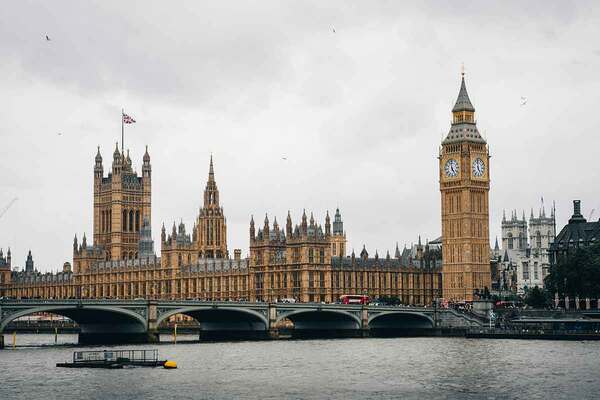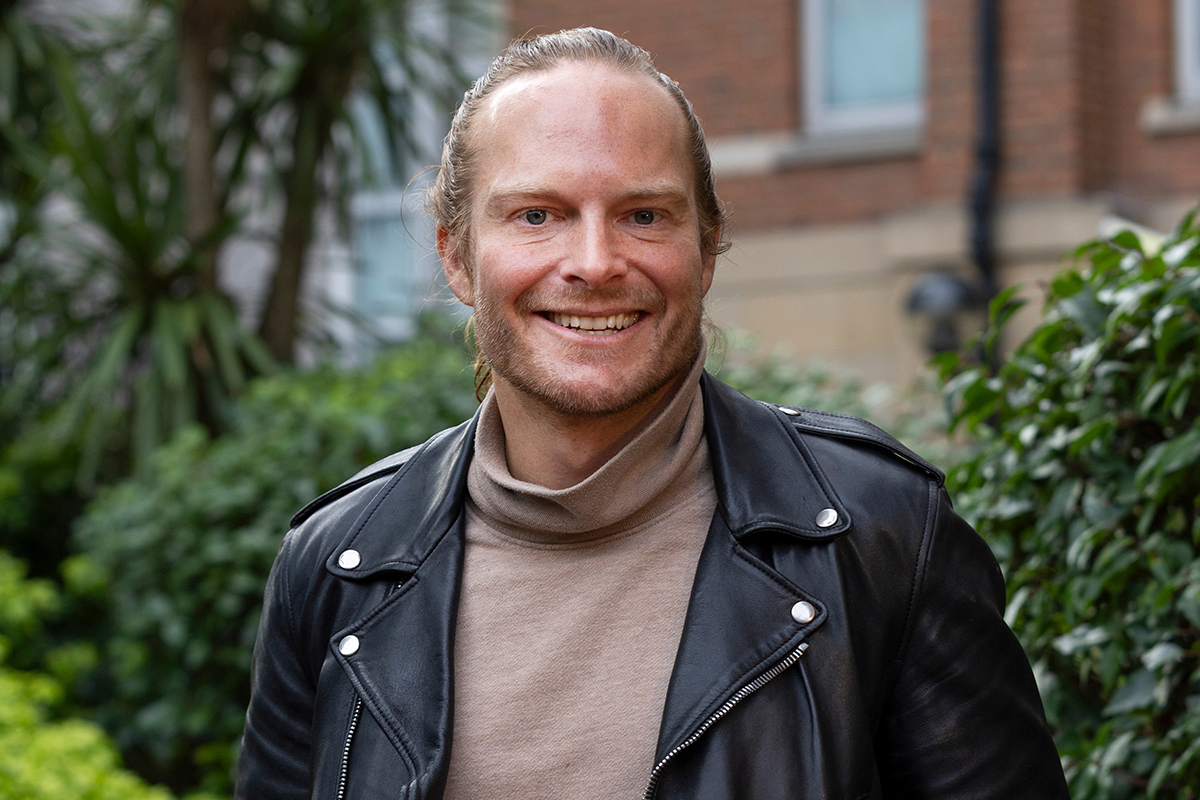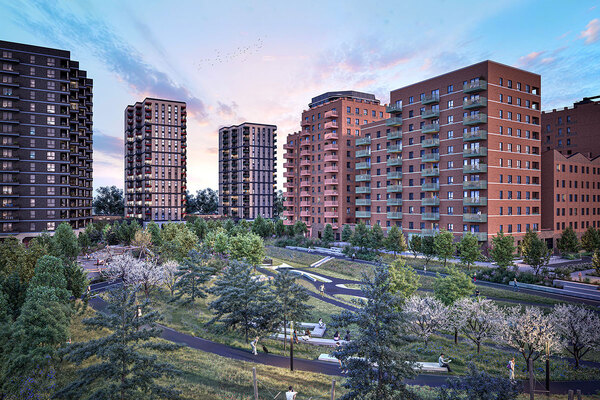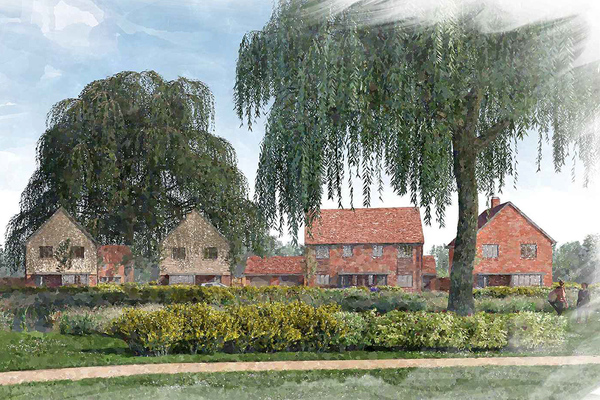Investing in social housing could add over £50bn to economy, NHF and Shelter find
Investing in social housing could add billions of pounds to the economy, including £12bn profit to the taxpayer, according to new research commissioned by Shelter and the National Housing Federation (NHF).

The research, carried out by the Centre for Economics and Business Research (CEBR) and published in a report called The economic impact of building social housing, found that building 90,000 social homes per year would generate £51.2bn net (£86.5bn gross) of economic and social benefits over 30 years.
The report demonstrates that within three years, building the homes would break even and return £37.8bn back to the economy, largely by boosting the construction industry.
The figures are based on analysis of two previously published pieces of research: CEBR’s research for Centrepoint assessing the costs of youth homelessness, and Hyde’s project on evaluating the social benefit of its social housing provision.
It found that the new social homes would generate £4.5bn in savings on housing benefit, £2.5bn of income from construction taxes, £3.8bn of income from employment taxes, £5.2bn in savings to the NHS, £4.5bn in savings from reducing homelessness, and £3.3bn savings to Universal Credit.
The researchers found that the savings and additional tax revenue mean the initial government funding required to build the homes – £11.8bn – would be fully paid back in 11 years.
The NHF and Shelter said that for decades, successive governments have “failed to build enough social homes and every year we lose more than we build through Right to Buy sales and demolitions”.
Last year, there was a net loss of nearly 11,700 social homes, while 1.3 million households are on social housing waiting lists in England.
Record numbers are living in temporary accommodation, including nearly 140,000 children.
Ahead of the general election, both organisations are calling for political parties to commit to ending the housing crisis.
They said this can be done with a long-term plan that prioritises social housing, including urgent action to ramp up delivery of 90,000 new social homes a year to meet demand.
Polly Neate, chief executive of Shelter, said that homelessness is a “political choice, with a simple solution”.
She said: “Building 90,000 social homes a year will not only end the housing emergency, but due to the wider economic benefits it brings, it will pay for itself within just three years.
“Day after day our frontline services are inundated with calls from people who are being tipped into homelessness because there are no genuinely affordable homes available and private renting is just too expensive.
“Communities are being torn apart as people are priced out of their local areas – leaving behind their jobs, children’s schools and support networks.
“It doesn’t have to be this way. A safe and secure social home will give people a place to thrive – improving their health and access to work and education.
“All political parties must make the choice to ending the housing emergency – they must fully commit to building 90,000 new genuinely affordable social rent homes a year for 10 years.”
Kate Henderson, chief executive of the NHF, said building more social homes is a “win-win solution”.
She added: “It will immediately boost the construction industry, supporting thousands of jobs, and will save the government and taxpayer money over the longer term.
“It also brings huge benefits to people affected by the housing crisis through reducing homelessness, increasing employment and boosting children’s life chances.
“We urge all political parties to commit to a long-term plan for housing with funding to build a plan for a generation of new social homes.”
A Department for Levelling Up, Housing and Communities (DLUHC) spokesperson said: “Last year saw the highest year on record for affordable housing delivery, with a 12% increase in starts to the previous year and since 2010, we have delivered over 696,100 new affordable homes, including over 172,600 homes for social rent.
“Our commitment to building more homes and boosting social housing supply remains, and our £11.5bn Affordable Homes Programme will deliver thousands more affordable homes to rent and buy across the country.
“Through our long term plan for housing we are on track to meet our manifesto commitment to build one million homes over this parliament.”
Inside Housing’s Build Social campaign is also calling for 90,000 social homes a year in England, and 100,000 UK-wide.
Sign up for our daily newsletter
Already have an account? Click here to manage your newsletters
